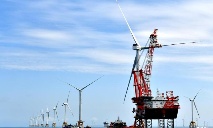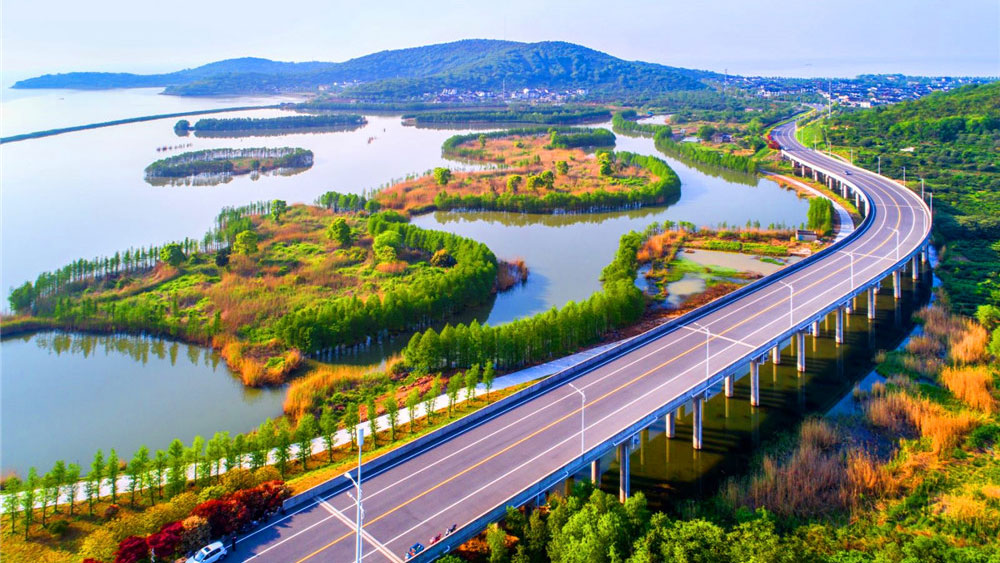Experts share their views on the CPC's governance (2)
Party leads building of modern civilization
Chinese civilization has a glorious history of more than 5,000 years. Still, building a modern civilization is a daunting task and a challenging project for the Chinese nation.
Since the First Opium War (1840-42), this project has covered two major stages: the preparatory period from 1840 to 1949 (founding of the People's Republic of China), and the construction period from 1949 to the present.
After experiencing many ups and downs and going through arduous struggles, the Chinese nation has achieved significant progress in building or preliminarily establishing a modern civilization.
And all this has been achieved under the leadership of the Communist Party of China.
Marxism is a political and economic philosophy that uses materialist interpretation of historical socioeconomic development, or historical materialism, to understand social conflict, and dialectics to analyze social transformation.
However, to ensure it plays a key role in the transformation of Chinese society, Marxism must be combined with China's reality and integrated with China's fine traditional culture. This process can be called Sinicizing and modernizing Marxism.
In the process of building a modern civilization, the CPC, after going through the stages of exploration and summarization, gains and losses, and optimization and refinement for more than a century, has developed a massive, effective policy system.
From a legal perspective, this system covers several levels, from the Constitution to local regulations for cultural activities.
In terms of content, the system can be divided into two major parts: building of a material civilization and building of a spiritual civilization.
As for spiritual civilization, it includes the protection, inheritance and use of fine traditional culture, as well as modern socialist culture. Ample resources and the correct approach to handle those resources are required to build a modern civilization.
The CPC has attached great importance to cultural resources, in war times as well as during the socialist construction period.
In 1942, Chairman Mao Zedong called on the Chinese people to inherit the excellent literary and artistic heritage, both foreign and Chinese, critically absorb all things beneficial, and use them as reference when describing the lives of the people in their works. He went a step further in 1964 to propose the principle that encourages the Chinese people to use "the past to serve the present and the foreign to serve China".
After the launch of reform and opening-up, late leader Deng Xiaoping, reiterating this principle, stressed the need to dialectically handle domestic and foreign cultural resources.
And after being elected general secretary of the CPC Central Committee at the 18th National Congress of the CPC in 2012, Xi Jinping put forward the concept of creatively transforming and innovatively developing fine traditional Chinese culture and promoting exchanges and mutual learning among civilizations. Over the years, Party leaders have recognized the richness and importance of traditional and foreign resources, and proposed an effective way of using resources in the construction of modern Chinese civilization.
Especially in the new era, traditional and foreign resources have played a significant role in the construction of modern Chinese civilization. For example, ancient Chinese literature, poetry in particular, was once confined to books and exchanges among scholars. Today, TV programs such as the "Chinese Poetry Competition" have made millions of people appreciate poetry, and inspired more people to participate in poetry competitions.
The establishment of the national park system is another example. Originating in the United States in the second half of the 19th century, this system helps the authorities to better protect the environment and ecology including rare and threatened flora and fauna. China issued the overall plan for establishing a national park system in September 2017. And thanks to this system, China has better protected ecological and cultural resources.
Under the Party's leadership, and due to people's cultural contributions, China's national characteristics are manifested in the inheritance of the outstanding traditional culture and core socialist values. They can be seen in the significant development of cultural facilities including museums, as well as in the systematic protection and use of intangible cultural heritage. They can also be seen in the rapid development of China's science and technology sector.
According to the report of the 20th Party Congress in October 2022, China has built the world's largest network of high-speed railways and expressways, as well as airports, ports, and water conservancy projects, power generation and supply infrastructure, while improving information and other infrastructure facilities. It has also become stronger in basic research and innovation, made breakthroughs in some core technologies, and boosted emerging strategic sectors. And these national characteristics, rich with contemporary connotations, are reflected in modern Chinese civilization.
The author is a professor in the department of literature and history research at the Party School of the CPC Central Committee.
 |  |
Photos
Related Stories
- Book on CPC history published in more foreign languages
- Report on CPC's "Second Integration" theory unlocks understanding of China
- Symphony concert held in Beijing to celebrate 102nd founding anniversary of CPC
- CPC sees membership surpass 98 mln
- CPC leadership reviews guidelines on policies supporting construction of Xiong'an
Copyright © 2023 People's Daily Online. All Rights Reserved.









